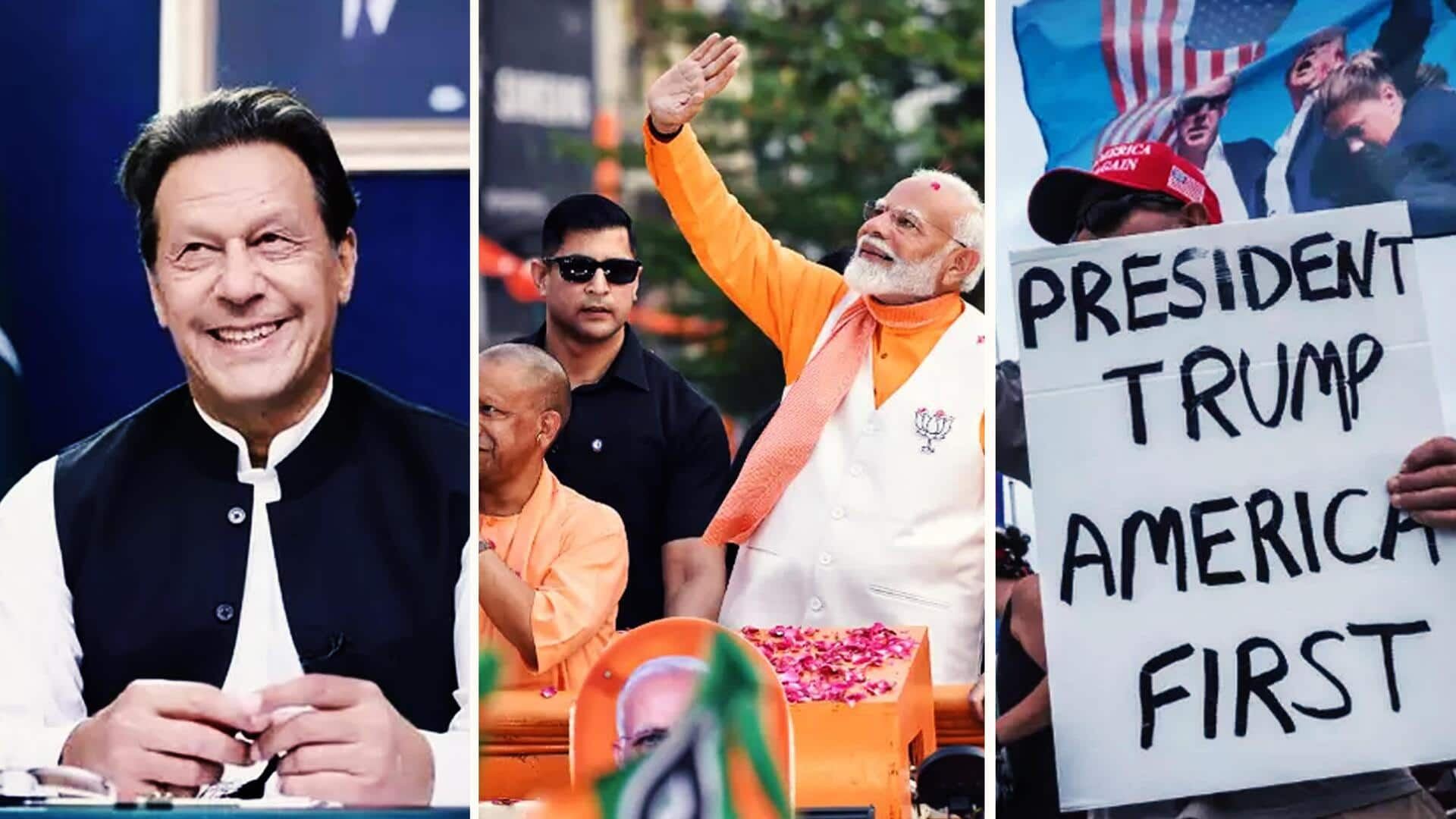
Year ender 2024: Key winners, losers in election year
What's the story
The year 2024 saw an unprecedented wave of global elections, with at least 64 countries participating. Over half of the world's population voted, marking a historic milestone in electoral history. The United States presidential election was the most influential event, with Donald Trump returning to the White House as the Republican candidate, defeating Vice President Kamala Harris. Trump's win marks a rare comeback, making him the second United States president to serve non-consecutive terms.
Asian elections
India's BJP retains power, Pakistan's election controversy
Let's start with India. In 2024, India held the world's largest election with over 96.88 crore eligible voters participating in the Lok Sabha elections. Prime Minister Narendra Modi's Bharatiya Janata Party (BJP) returned to power for a third term, albeit with a reduced majority. Meanwhile, Pakistan's February elections were marred with controversy as Pakistan Tehreek-e-Insaf (PTI) was barred from contesting. Despite this and alleged military interference, PTI-backed independents emerged as the largest bloc but weren't allowed to form a government.
UK elections
UK Conservatives suffer defeat, Labour Party triumphs
In the United Kingdom, the July 2024 general election led to a historic power shift. The Conservative Party, led by Prime Minister Rishi Sunak, suffered a crushing defeat after 14 years in power. It was one of their worst electoral performances in history. The Labour Party, led by Keir Starmer, won and took power after this historic election.
Bangladesh elections
Bangladesh's Awami League wins amid low turnout
Bangladesh held its elections on January 7, with the Awami League winning for the fourth consecutive time amid a low voter turnout and an opposition boycott. However, despite her victory, Sheikh Hasina was forced to flee in August due to public protests. This election saw less than 10% of eligible voters casting their votes, largely attributed to a boycott by the main opposition party, BNP.
Sri Lanka elections
Sri Lanka witnesses political shift with Marxist leader's win
Sri Lanka has also seen major political changes with Marxist leader Anura Kumara Dissanayake winning the presidency in September. His party, National People's Power (NPP), won a landslide victory in November's parliamentary elections. This was a major shift in the country's political landscape, proving how much influence voters have on the change of national leadership.